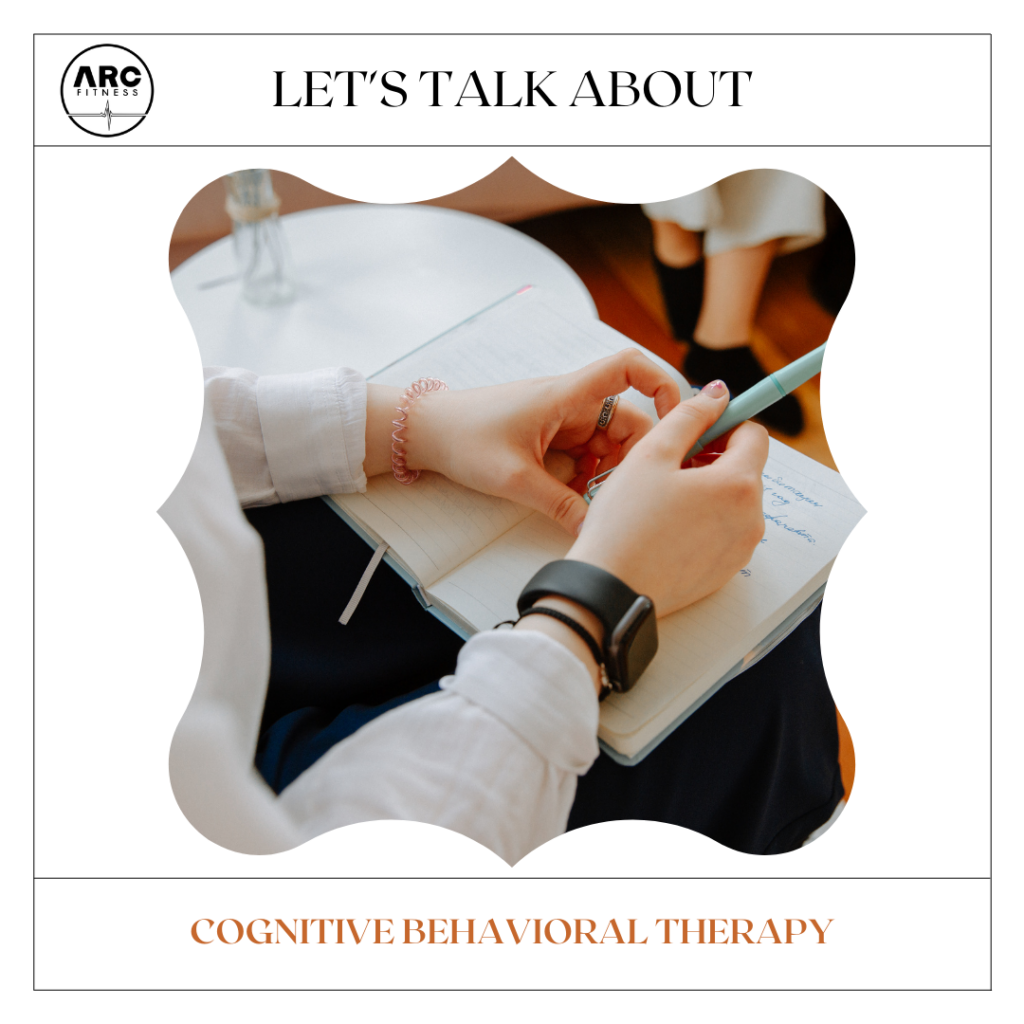No products in the basket.
Arc Fitness
CBT in Addiction Recovery: An Effective Therapy for Long-Term Sobriety
As addiction to drugs, alcohol, or any substance is becoming more prevalent, the need for effective treatment options is growing. One of the most promising treatments is cognitive-behavioural therapy (CBT). CBT is a form of talk therapy that helps individuals change negative thinking patterns and behaviours. It has been shown to be effective in treating addiction, and many experts consider it a vital part of the recovery process. In this article, we will explore how CBT can help individuals achieve long-term sobriety.
What is CBT?
CBT is a type of psychotherapy that focuses on the relationship between thoughts, feelings, and behaviours. It is based on the idea that negative thinking patterns can contribute to negative behaviours and emotions. In CBT, a therapist works with a patient to identify these patterns and develop strategies to change them. CBT is typically short-term and focused on specific goals. The goal of CBT is to teach patients how to manage their thoughts and emotions in a more positive way.
How CBT Works in Addiction Recovery
In addiction recovery, CBT is used to help patients understand the triggers that lead to drug or alcohol use. The therapist helps the patient identify negative thoughts and behaviours that may contribute to drug or alcohol use. Once these negative patterns are identified, the therapist works with the patient to develop new, positive patterns. For example, if a patient uses drugs or alcohol to deal with stress, the therapist may teach the patient relaxation techniques or coping strategies that can be used instead of drugs or alcohol.
CBT is often used in combination with other treatments, such as medication and group therapy. It has been shown to be effective in treating a wide range of substance use disorders, including alcohol, cocaine, and opioid addiction.
The Benefits of CBT in Addiction Recovery
One of the main benefits of CBT in addiction recovery is that it helps patients develop new coping skills that can be used throughout their lives. By learning how to manage negative thoughts and behaviours, patients are better equipped to deal with stressful situations without turning to drugs or alcohol. CBT can also help patients develop better communication skills, which can improve relationships with family and friends.
Another benefit of CBT in addiction recovery is that it can be tailored to the individual needs of the patient. The therapist works with the patient to develop a treatment plan that is specific to their needs and goals. This personalised approach can lead to better outcomes and increased success in achieving long-term sobriety.
The Role of CBT in Long-Term Sobriety
Achieving long-term sobriety is a complex process that requires ongoing support and treatment. CBT can play an essential role in this process by providing patients with the skills they need to manage their addiction and maintain sobriety. By learning how to identify and manage triggers, patients can avoid relapse and stay on the path to recovery.
CBT is also effective in helping patients deal with the underlying emotional and psychological issues that may contribute to addiction. By addressing these issues, patients are better equipped to handle the challenges of recovery and stay sober for the long term.
Conclusion
CBT is an effective treatment option for addiction recovery. By helping patients identify negative thought patterns and behaviours, CBT provides them with the tools they need to manage their addiction and achieve long-term sobriety. CBT is a personalised approach to treatment that can be tailored to the individual needs of the patient. It can be used in combination with other treatments, such as medication and group therapy, to provide a comprehensive approach to addiction recovery. If you or someone you know is struggling with addiction, CBT may be a viable treatment option to consider.

